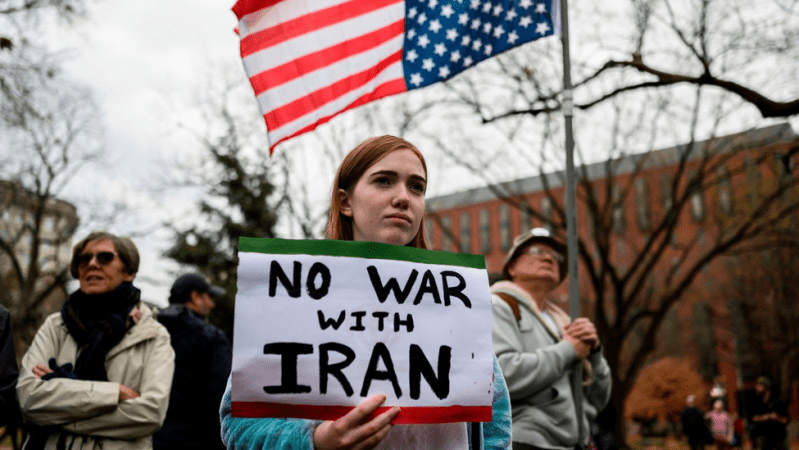If you’re a student today, war isn’t the worst-case scenario — it’s the baseline.
Today’s college students today have lived through war for 83-100% of their lives. So, when political brinkmanship threatens new peril, students’ first reflex seems to be fatigue.
As America’s foreign policy apparatus sketches contingency plans and trades barbs with Iran, young people have drawn a firm line against war. Students’ vigorous opposition to war dates back to Vietnam, when they shook higher education and government to register their fury. Now as Iran promises more revenge for the Soleimani strike, American students are pleading for peace: Only 17% support military engagement with Iran, while 82% oppose it, according to recent polling by College Reaction, a youth-focused polling firm I run. Students’ war views stand in even starker relief compared to how the general public views the matter. According to polling by Quinnipiac, 64% said they oppose full-on war with Iran.
And students’ gripes translate into economic terms too. Policy wonks love nothing more than to underline the fiscal recklessness of most plans for debt forgiveness or free college. Yet, the war in Iraq has cost more than even the most aggressive plans to wipe out student debt. When the same leaders who tell young people debt relief is too expensive then pivot towards saber-rattling with Iran, their finger-wagging makes less sense.
The current gulf between public and student views on war matches the Vietnam-era gap. In 1969, 44% of students said they opposed the war, compared to 25% of the general public, according to a Gallup poll. That 19-point drop-off is nearly identical to today’s 18-point war-gap.
And more recently, 66% of college students supported the war in Iraq in April of 2003 (12 points lower than the general public) according to polling from Harvard’s Institute of Politics. And that already-low figure tumbled to 58% six months later. Students caught on quickly.
Students have had an anti-war streak for years — they have historically opposed it more than the rest of America — but now that aversion has morphed into war fatigue. Vietnam protests marshaled students opposition to a proxy fight that might stretch into their adulthood, whereas students opposing the notion of war with Iran may simply be scarred by living through for a lifetime of war in the Middle East.
Young people’s lack of appetite for combat — and its economic spillover —meshes with what issues matter most to them: Climate change tops the list as the most pressing issue to young voters, followed by healthcare and the economy, according to College Reaction polling.
Months ago, tension with Iran was surely a distressing sub-current in the geopolitical landscape, but all-out war was inconceivable. That we’ve raced to the brink of battle with Iran seems like a fatal distraction from the issues that matter most to young people.Training in the arts of foreign policy requires a lifetime, but mastering the reflex to avoid conflict seems to take less time. Given the fate of our wars in Iraq and Vietnam, perhaps the students were ahead of the curve.
Methodology:
Data in this report are generated from a College Reaction poll conducted Feb. 17. A total of 820 panelists participated in the poll. The margin of error for the full sample is +/- 3.4 points. College Reaction’s polling is conducted using a demographically representative panel of college students from around the country. The surveys are administered digitally and use college e-mail address as an authentication tool to ensure current enrollment in a four-year institution. The target population for the general population sample was students currently enrolled in accredited four-year institutions in the U.S.
Respondents in this poll were randomly selected from a respondent database, which aims to mirror the broader college demographic from a racial, geographic and political standpoint. Results are weighted to mirror race and gender statistics of the college demographic as defined by the National Center for Education statistics.
Cyrus Beschloss is the founder of College Reaction Polling and a master’s student in Stanford’s journalism program.
Contact Cyrus Beschloss at cyrusb ‘at’ stanford.edu.
